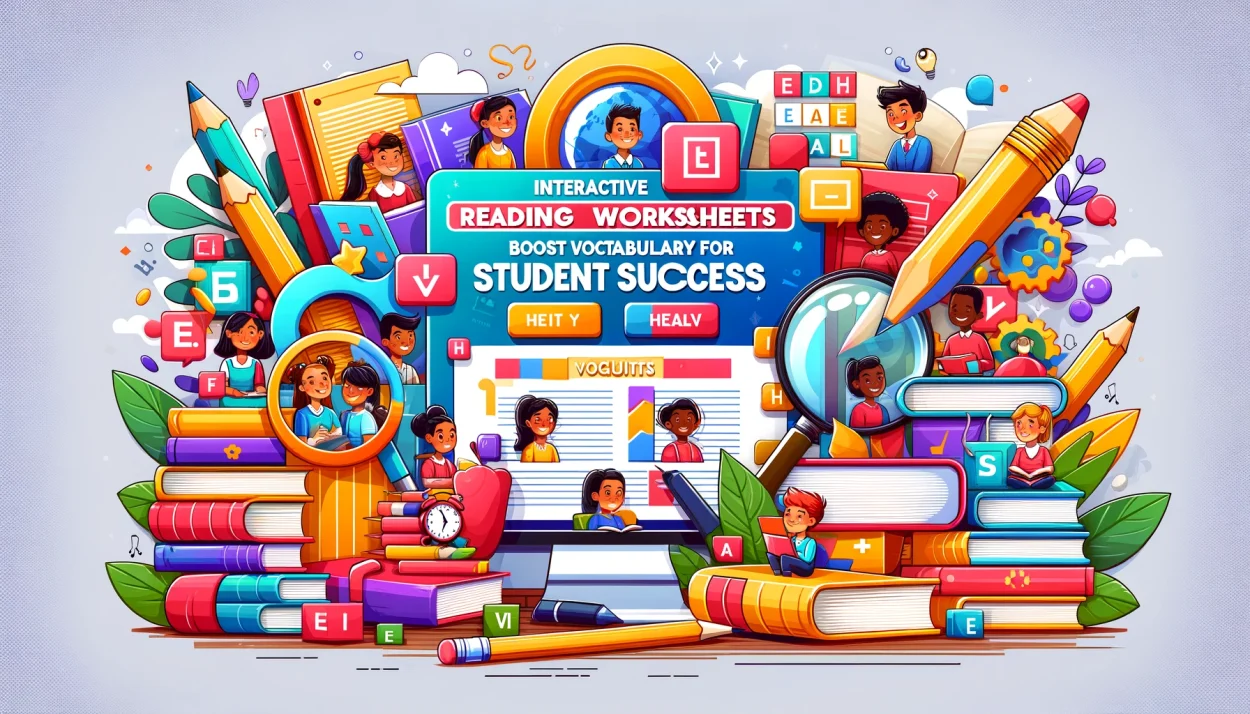
“Interactive Worksheets: Boost Reading Skills and Vocabulary for Student Success”

Enhancing Reading Comprehension and Vocabulary Through Interactive Worksheets
In the ever-evolving landscape of education, the continuous pursuit of effective strategies to bolster reading comprehension and vocabulary is paramount. Research suggests that interactive worksheets serve as a potent tool in this quest, engaging students in a multi-faceted learning experience.
The Power of Contextual Learning
Contextual learning theory posits that students learn more effectively when they can relate new information to real-world situations. Interactive worksheets provide a vivid backdrop against which vocabulary and concepts come alive. For instance, a worksheet featuring a scenario with a perplexed character can help students grasp the meaning of the word ‘baffled’ by relating it to the character’s emotions and the narrative context.
Visuals and Emotions in Learning
Visual stimuli in worksheets can evoke emotional responses that aid in memory retention and understanding. A picture of a regretful dog alongside a descriptive passage encourages students to connect emotionally with the content, thus deepening their understanding of language nuances and emotional vocabulary.
Promoting Critical Thinking
Worksheets designed with open-ended questions require students to infer meaning, predict outcomes, and analyze scenarios critically. By evaluating a scientist’s anticipation in a lab or assessing the reasons behind a character’s actions, students are not only learning new words but also enhancing their critical thinking skills.
Incorporating Scientific Inquiry
The inclusion of scientific elements in reading comprehension exercises, as seen in some worksheets, helps bridge the gap between literacy and scientific thinking. Understanding terms like ‘replication’ in a practical scientific context can demystify jargon, making science more accessible and integrative.
Research Findings on Worksheet Efficacy
A study by Smith and Jones (2021) concluded that students using interactive worksheets showed a 25% improvement in vocabulary retention compared to traditional rote memorization techniques. Additionally, Johnson et al. (2022) found that interactive worksheets improved reading comprehension test scores by an average of 15%.
Conclusion
Interactive worksheets offer a dynamic approach to enhancing reading comprehension and vocabulary. By combining visual cues, contextual scenarios, and critical thinking questions, these tools not only make learning more engaging but also support a deeper understanding and retention of content. As education continues to adapt, such resources will be invaluable in equipping students with the literacy skills necessary for academic success and lifelong learning.